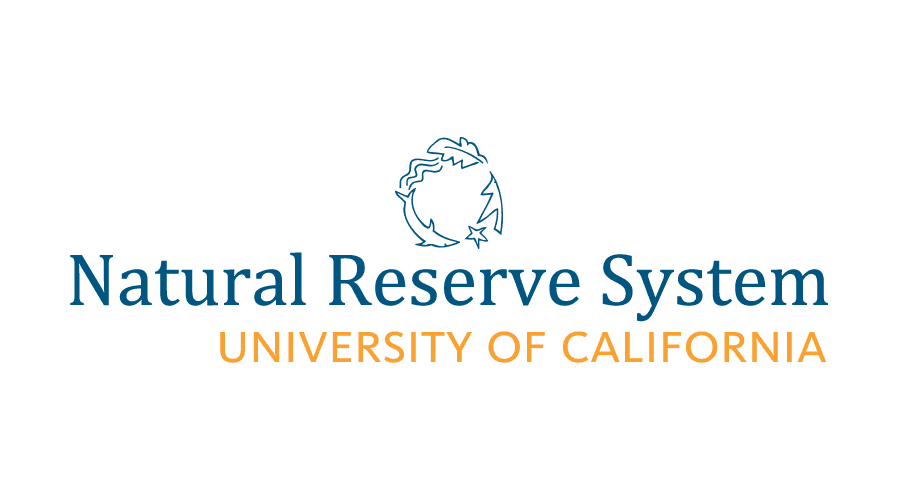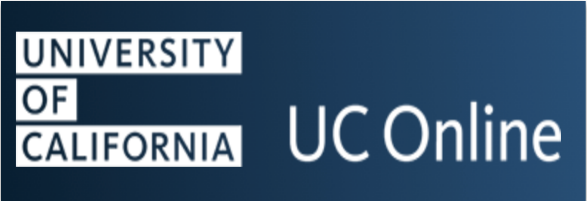Facilitate
Public service partnerships convening experts to share knowledge, pooling resources, and fostering collaborations to promote disaster resilience.
.png)

The American Red Cross and the International Federation of Red Cross and Red Crescent Societies (IFRC) have established the Global Disaster Preparedness Center (GDPC) as a reference center to support innovation and learning in disaster preparedness. As one of 13 reference centers in the international Red Cross Red Crescent (RCRC) network, the GDPC aims to enhance disaster management – namely preparedness – capacities of Red Cross and Red Crescent national societies through a service-oriented and demand-driven approach to building community resilience.
.png)
The International Science Reserve (ISR) is a network of open scientific communities of discovery, bringing together specialized resources from across the globe to prepare for and help mitigate complex and urgent global crises. The ISR and UCDRN are developing several partnership opportunities.

The UC Natural Reserve System is a network of 41 protected natural areas located throughout the State that provide undisturbed environments for research, education and public outreach programs. It is the largest university-administered reserve system in the world encompassing more than 775,000 acres of diverse habitats from the ocean to the mountains to the inland deserts, and with access to more than a million acres of public lands. The Natural Reserve System contributes to the understanding and wise stewardship of the Earth. The seven UC NRS Reserves managed by UCSB are used by thousands of researchers, students and public visitors each year as they investigate and learn about the natural world. Reserve users come from throughout California, the U.S. and the world to study the Reserve’s diverse natural systems and native flora and fauna.
.png)
UCDRN partnered with EY to judge their 2023 Open Science Data Challenge for the creation of open-source solutions that could help save 800 million people from hunger. In 2024 UCDRN helped design and judge the Challenge, which generated more than 13,000 registrations from students and professionals across the globe. For this year's challenge, UCDRN provided the expertise to help design this year's challenge, and will continue to support this timely annual global competition. For more see here.

.png)
Cage free productions envision a world where stories build bridges and where what they build frees us rather than confines us. Across the globe, far too many people find themselves living in physical, mental, emotional, or spiritual cages. They creatively release media to break these structures and support social justice, human rights, and sustainability. These three pillars serve as the foundation from which all our work derives.

CCST is a non-partisan, nonprofit organization that exists to make California’s policies stronger with science and technology. Established via the California State Legislature in 1988 to provide objective advice from California's scientists and research institutions, we respond to the Governor, the Legislature, and other state entities who request independent assessment of public policy issues affecting the State of California relating to science and technology.
.png)
.png)
The University of California Disaster Resilience Network (UCDRN) and ARISE-US, the U.S. private-sector alliance of the UN Office for Disaster Risk Reduction (UNDRR), have partnered to strengthen disaster risk reduction and resilience-building across sectors. This collaboration brings together UCDRN’s extensive research expertise and partnerships with ARISE-US’s broad network of private sector stakeholders, aligned with the Sendai Framework for Disaster Risk Reduction. A key initiative includes integrating UCDRN into ARISE-US’s successful mentorship program, connecting emerging leaders with resilience practitioners across regions and industries.
In addition to mentorship, the partnership focuses on aligning UC research with ARISE-US’s disaster resilience standards and guidelines. Together, they are co-hosting public-facing, community-serving events, such as the Global Early Warning Systems Conference scheduled for June 2025. These initiatives highlight the partners’ shared commitment to applied science, cross-sector engagement, and fostering equitable, locally informed solutions for global disaster resilience challenges.

The University of California Disaster Resilience Network (UCDRN) and the San Diego Supercomputer Center (SDSC) at UC San Diego have partnered to develop the Disaster Resilience Database—a pioneering initiative aimed at enhancing disaster preparedness, response, and recovery through advanced data integration and analysis. This collaboration leverages SDSC's high-performance computing capabilities and the University of California's extensive expertise and facilities to create a centralized, accessible repository of multidisciplinary data related to disaster risk and resilience.
Designed as a one-stop plugin point, the Disaster Resilience Database will connect the deep pockets of talent housed across the University of California system, mapping these resources to one another and linking them with practitioners, policymakers, and innovators across California and the world. By facilitating real-time analysis and visualization of diverse datasets, the database will support evidence-based decision-making and foster collaborations that promote equitable and effective disaster resilience strategies.
This partnership, supported by stakeholders such as the California Council on Science and Technology, the American Red Cross, Microsoft AI for Good, and the California Governor's Office of Land Use and Climate Innovation, exemplifies a collective commitment to interdisciplinary collaboration. By integrating cutting-edge technology with diverse academic expertise, the initiative aims to address the complexities of compounding disasters in our globally interconnected era.

osaka-u.ac. Through multilateral programs, leadership initiatives, student exchanges, and policy forums, APRU aims to use the collective strength of its member universities to generate solutions and drive impact across the region.

Through our strong and expanding partnership with UCOnline, UCDRN is advancing a core curriculum of system-wide hybrid and online courses.

Global Disaster Preparedness Center
The American Red Cross and the International Federation of Red Cross and Red Crescent Societies (IFRC) have established the Global Disaster Preparedness Center (GDPC) as a reference center to support innovation and learning in disaster preparedness. As one of 13 reference centers in the international Red Cross Red Crescent (RCRC) network, the GDPC aims to enhance disaster management – namely preparedness – capacities of Red Cross and Red Crescent national societies through a service-oriented and demand-driven approach to building community resilience.
.png)
International Science ReserveThe International Science Reserve (ISR) is a network of open scientific communities of discovery, bringing together specialized resources from across the globe to prepare for and help mitigate complex and urgent global crises. The ISR and UCDRN are developing several partnership opportunities.

UC Natural Reserve SystemThe UC Natural Reserve System is a network of 41 protected natural areas located throughout the State that provide undisturbed environments for research, education and public outreach programs. It is the largest university-administered reserve system in the world encompassing more than 775,000 acres of diverse habitats from the ocean to the mountains to the inland deserts, and with access to more than a million acres of public lands. The Natural Reserve System contributes to the understanding and wise stewardship of the Earth. The seven UC NRS Reserves managed by UCSB are used by thousands of researchers, students and public visitors each year as they investigate and learn about the natural world. Reserve users come from throughout California, the U.S. and the world to study the Reserve’s diverse natural systems and native flora and fauna
.png)
Ernst & YoungUCDRN partnered with EY to judge their 2023 Open Science Data Challenge for the creation of open-source solutions that could help save 800 million people from hunger. In 2024 UCDRN helped design and judge the Challenge, which generated more than 13,000 registrations from students and professionals across the globe. For this year's challenge, UCDRN provided the expertise to help design this year's challenge, and will continue to support this timely annual global competition. For more see here.

Ora Organic is a wellness brand dedicated to creating clean, plant-based, and sustainably sourced supplements designed to support overall health and performance. Their product line includes organic protein powders, probiotics, prebiotics, vitamins, and nutrient-rich superfood blends made from real fruits, vegetables, and herbs. Ora emphasizes transparency, quality, and ethical sourcing—every product is vegan, non-GMO, gluten-free, and free from artificial additives. The company’s mission is to make nutrition simple, trustworthy, and aligned with both personal well-being and environmental sustainability.
.png)
Cage Free ProductionsCage free productions envision a world where stories build bridges and where what they build frees us rather than confines us. Across the globe, far too many people find themselves living in physical, mental, emotional, or spiritual cages. They creatively release media to break these structures and support social justice, human rights, and sustainability. These three pillars serve as the foundation from which all our work derives.

In 2025, UCDRN and the California Council on Science & Technology (CCST) co-hosted a year-long Expert Briefings series on Climate Change & Human Mobility. Panel #1 (Feb 19) set the baseline—why, how, and where people are moving as climate and disaster risk shifts—featuring Daniel Swain (UC/ANR), Jesse Keenan (Tulane), and Valerie Mueller (ASU), moderated by Doug Parsons, and produced with Berkeley’s Center for Security in Politics (CSP). Panel #2 (Jun 4) drilled into the insurability and rebuilding challenge—how escalating premiums, housing costs, and land-use decisions shape relocation and post-disaster recovery—under the CCST Expert Briefings banner. Panel #3 (Oct 2) examined cross-border mobility and its legal, social, and policy dimensions, co-hosted by UCDRN, CCST, and Berkeley’s Institute for Security in Governance (ISG), with an introductory message from Janet Napolitano. Across the series, UCDRN and CCST convene a multi-disciplinary bench—climate science, migration studies, economics, urban planning, infrastructure and insurance, and public policy—drawing experts from UC campuses and national labs alongside out-of-state universities and policy centers (e.g., Tulane, ASU).The program is designed as a four-part, year-long series that UCDRN and partners plan to culminate with a large in-person convening in spring 2026 in Sacramento to synthesize lessons and translate them into actionable guidance for California decision-makers.
.png)
Miyamoto International is a global structural engineering and disaster-risk reduction firm providing resiliency expertise that sustains industries and safeguards communities. They proudly sponsored our inaugural Disaster Resilience Day, supporting efforts to advance resilience and collaboration in disaster-risk research.
.png)
The University of California Disaster Resilience Network (UCDRN) and ARISE-US, the U.S. private-sector alliance of the UN Office for Disaster Risk Reduction (UNDRR), have partnered to strengthen disaster risk reduction and resilience-building across sectors. This collaboration brings together UCDRN’s extensive research expertise and partnerships with ARISE-US’s broad network of private sector stakeholders, aligned with the Sendai Framework for Disaster Risk Reduction. A key initiative includes integrating UCDRN into ARISE-US’s successful mentorship program, connecting emerging leaders with resilience practitioners across regions and industries.In addition to mentorship, the partnership focuses on aligning UC research with ARISE-US’s disaster resilience standards and guidelines. Together, they are co-hosting public-facing, community-serving events, such as the Global Early Warning Systems Conference scheduled for June 2025. These initiatives highlight the partners’ shared commitment to applied science, cross-sector engagement, and fostering equitable, locally informed solutions for global disaster resilience challenges.

The San Diego Supercomputer Center (SDSC)The University of California Disaster Resilience Network (UCDRN) and the San Diego Supercomputer Center (SDSC) at UC San Diego have partnered to develop the Disaster Resilience Database—a pioneering initiative aimed at enhancing disaster preparedness, response, and recovery through advanced data integration and analysis. This collaboration leverages SDSC's high-performance computing capabilities and the University of California's extensive expertise and facilities to create a centralized, accessible repository of multidisciplinary data related to disaster risk and resilience.Designed as a one-stop plugin point, the Disaster Resilience Database will connect the deep pockets of talent housed across the University of California system, mapping these resources to one another and linking them with practitioners, policymakers, and innovators across California and the world. By facilitating real-time analysis and visualization of diverse datasets, the database will support evidence-based decision-making and foster collaborations that promote equitable and effective disaster resilience strategies.This partnership, supported by stakeholders such as the California Council on Science and Technology, the American Red Cross, Microsoft AI for Good, and the California Governor's Office of Land Use and Climate Innovation, exemplifies a collective commitment to interdisciplinary collaboration. By integrating cutting-edge technology with diverse academic expertise, the initiative aims to address the complexities of compounding disasters in our globally interconnected era.

The Association of Pacific Rim Universities (APRU) is a consortium of leading research universities across the Pacific Rim that seeks to advance knowledge, address regional challenges, and shape public policy through collaborative education and research. Founded in 1997 by the presidents of several U.S. universities, APRU was envisioned as a bridge linking academic institutions in the Americas, Asia, and Australasia to tackle big issues like climate change, sustainable cities, health, AI, and social equity. Through multilateral programs, leadership initiatives, student exchanges, and policy forums, APRU aims to use the collective strength of its member universities to generate solutions and drive impact across the region.
